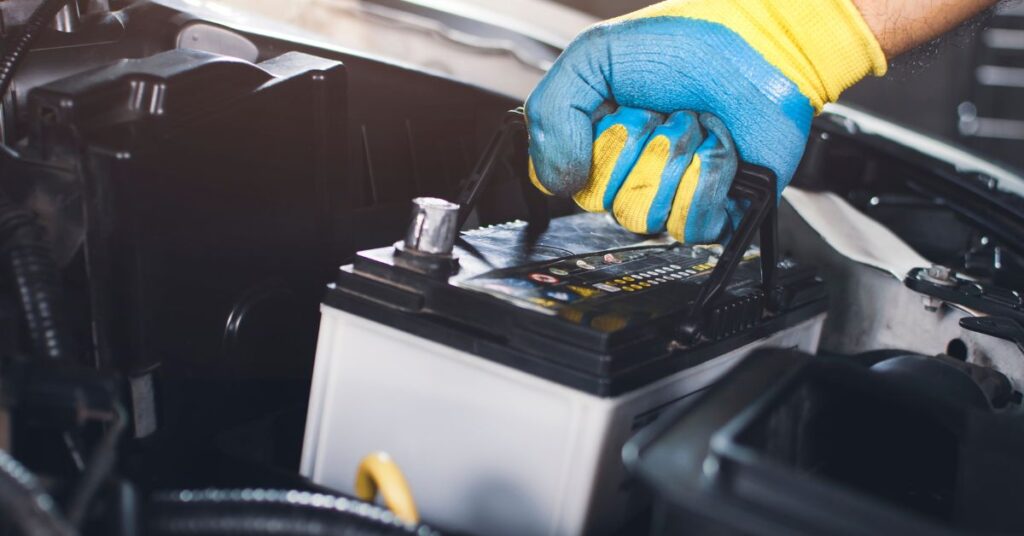
Table of Contents
When summer arrives and temperatures soar, it’s not just your air conditioning that feels the strain… your car battery does, too. High temperatures can significantly impact the performance and lifespan of your car battery, often in ways that might surprise you. Understanding how hot weather affects your car battery is crucial for maintaining your vehicle’s reliability and avoiding unexpected breakdowns.
How Does Hot Weather Affect Your Car Battery?
Hot weather affects your car battery in several ways. High temperatures can cause the battery fluid to evaporate, leading to reduced battery life. Additionally, excessive heat can accelerate the chemical reactions inside the battery, increasing the risk of damage and decreasing overall efficiency. Here are the key factors to consider:
Evaporation of Battery Fluid
One of the primary ways hot weather affects your car battery is through the evaporation of battery fluid. Car batteries contain water and sulfuric acid, facilitating the chemical reactions necessary for producing electrical energy. This fluid can evaporate more quickly in high temperatures, leading to a lower fluid level. This can result in decreased battery performance and a shorter lifespan.
Increased Chemical Reactions
While chemical reactions within the battery are essential for its function, high temperatures can accelerate these reactions. This increased activity can lead to overcharging, where the battery generates excess heat, further contributing to fluid evaporation and potential damage to the internal components. Over time, this can cause the battery to fail prematurely.
Corrosion and Damage
High temperatures can also cause the battery’s internal components to corrode rapidly. The heat can expand and contract the battery’s metal parts, leading to cracks and leaks. Corrosion can affect the battery terminals and connectors, leading to poor electrical connections and reduced power output. This can make it harder for your car to start and affect electrical system performance.
Signs of a Failing Car Battery in Hot Weather
Recognizing the signs of a failing car battery is important, especially during hot weather. Here are some symptoms to watch out for:
- Slow Engine Crank: If your engine takes longer to start than usual, it could be a sign that your battery is struggling.
- Dim Headlights: If your headlights appear dimmer than usual, it may indicate a weak battery.
- Electrical Issues: Problems with your car’s electrical systems, such as power windows, radio, or air conditioning, can signal battery issues.
- Check Engine Light: A failing battery can sometimes trigger the check engine light on your dashboard.
How to Protect Your Car Battery from High Temperatures
Protecting your car battery from high temperatures can help extend its life and ensure reliable performance. Here are some tips:
Regular Battery Inspections
Regularly inspecting your car battery can help you catch potential issues before they become serious problems. Check for signs of corrosion, cracks, or leaks. Ensure the battery terminals are clean and secure.
Maintain Proper Fluid Levels
You won’t need to worry about fluid levels if you have a maintenance-free battery. However, if your battery requires maintenance, check the fluid levels regularly and top them off with distilled water if necessary. This can help prevent evaporation and keep your battery functioning correctly.
Park in the Shade
Whenever possible, park your car in a shaded area or a garage. Keeping your vehicle out of direct sunlight can help reduce the temperature under the hood and minimize the impact of high temperatures on your battery.
Use a Battery Insulator
Battery insulators, also known as battery blankets, can help protect your battery from extreme temperatures. These insulators are designed to stabilize the battery temperature, reducing the effects of hot and cold weather.
Avoid Short Trips
Frequent short trips can prevent your battery from fully charging. Try to combine errands and take longer drives to ensure your battery gets a full charge. This can help maintain its health and longevity.
When to Replace Your Car Battery
Even with proper maintenance, car batteries have a limited lifespan. Most car batteries last between three to five years. If your battery is nearing the end of its lifespan, bring it to our shop, and we can test the strength of your existing battery. We sell replacements and can install a replacement battery for you if you need one. Contact us today to schedule your appointment.

